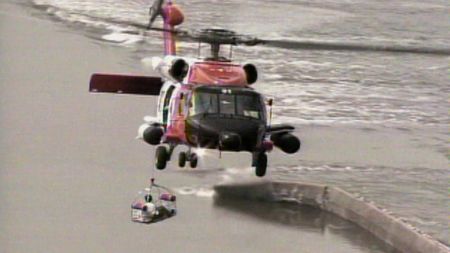Hurricane Katrina: Race Against Time
Shoot To Kill - Photos
Episodic
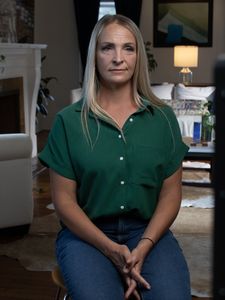
When Hurricane Katrina hit New Orleans in 2005, Sara Faulkner was a member of a U.S. Coast Guard helicopter rescue crew. She recounts her experience during an interview for National Geographic's Hurricane Katrina: Race Against Time. With emotional accounts of survivors and immersive archival footage, the series reveals Hurricane Katrina as a disaster that was anything but natural. (National Geographic)
Episode: #04 "Shoot To Kill"
Air Date 07/28/2025
104_ShootToKill_HurricaneKatrinaRaceAgainstTime_58.jpg
Download
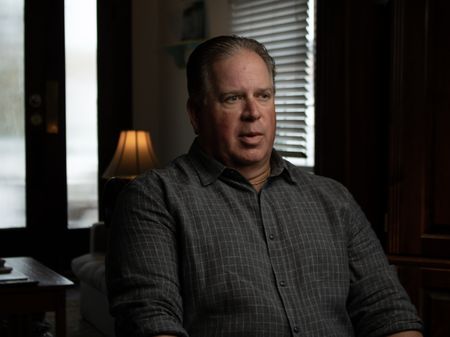
When Hurricane Katrina hit New Orleans in 2005, Bobby Norton was a Captain at the New Orleans Police Department. He recounts his experience during an interview for National Geographic's Hurricane Katrina: Race Against Time. With emotional accounts of survivors and immersive archival footage, the series reveals Hurricane Katrina as a disaster that was anything but natural. (National Geographic)
Episode: #04 "Shoot To Kill"
Air Date 07/28/2025
104_ShootToKill_HurricaneKatrinaRaceAgainstTime_06.jpg
Download
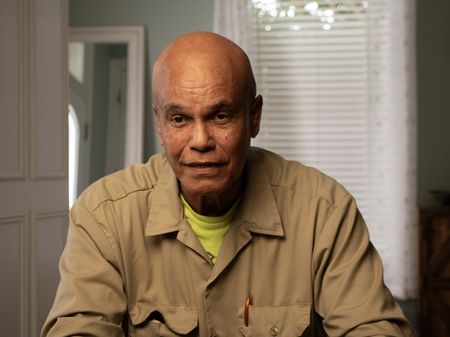
When Hurricane Katrina hit New Orleans in 2005, Eric A. Wright lived in the 7th Ward’s Gentilly neighborhood. After weathering the storm, he connected with a local friend, grabbed a boat and some gas, and began rescuing people. With emotional accounts of survivors and immersive archival footage, National Geographic's Hurricane Katrina: Race Against Time reveals Hurricane Katrina as a disaster that was anything but natural. (National Geographic)
Episode: #04 "Shoot To Kill"
Air Date 07/28/2025
104_ShootToKill_HurricaneKatrinaRaceAgainstTime_04.jpg
Download
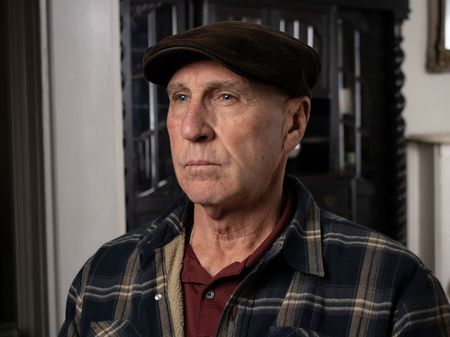
When Hurricane Katrina hit New Orleans in 2005, Tim Bayard was a Captain at the New Orleans Police Department. He recounts his experience during an interview for National Geographic's Hurricane Katrina: Race Against Time. With emotional accounts of survivors and immersive archival footage, the series reveals Hurricane Katrina as a disaster that was anything but natural. (National Geographic)
Episode: #04 "Shoot To Kill"
Air Date 07/28/2025
104_ShootToKill_HurricaneKatrinaRaceAgainstTime_11.jpg
Download
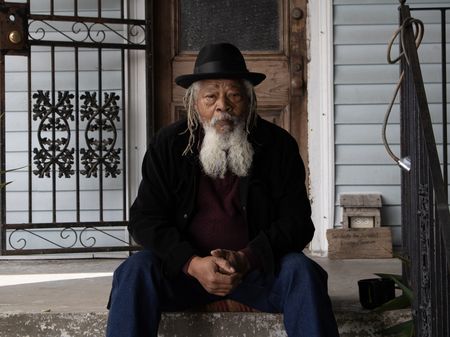
When Hurricane Katrina hit in 2005, Malik Rahim was a West Bank, an Algiers Point resident. He recounts his experience while being interviewed for the production of National Geographic's Hurricane Katrina: Race Against Time. With emotional accounts of survivors and immersive archival footage, the series reveals Hurricane Katrina as a disaster that was anything but natural. (National Geographic)
Episode: #04 "Shoot To Kill"
Air Date 07/28/2025
104_ShootToKill_HurricaneKatrinaRaceAgainstTime_15.jpg
Download
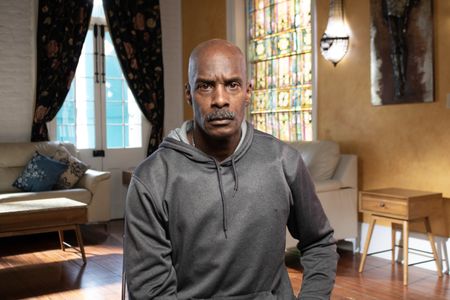
New Orleans resident William Tanner recounts the events surrounding the murder of Henry Glover in the aftermath of Hurricane Katrina, 2005. With emotional accounts of survivors and immersive archival footage, National Geographic's Hurricane Katrina: Race Against Time reveals Hurricane Katrina as a disaster that was anything but natural. (National Geographic)
Episode: #04 "Shoot To Kill"
Air Date 07/28/2025
104_ShootToKill_HurricaneKatrinaRaceAgainstTime_28.jpg
Download
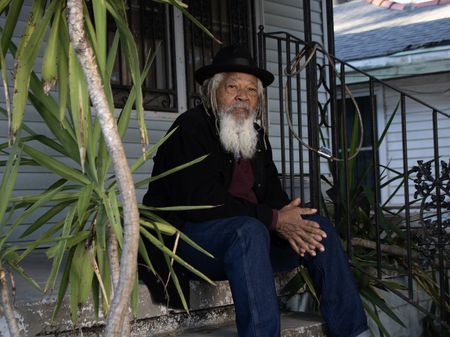
When Hurricane Katrina hit in 2005, Malik Rahim was a West Bank, an Algiers Point resident. He recounts his experience while being interviewed for the production of National Geographic's Hurricane Katrina: Race Against Time. With emotional accounts of survivors and immersive archival footage, the series reveals Hurricane Katrina as a disaster that was anything but natural. (National Geographic)
Episode: #04 "Shoot To Kill"
Air Date 07/28/2025
104_ShootToKill_HurricaneKatrinaRaceAgainstTime_16.jpg
Download
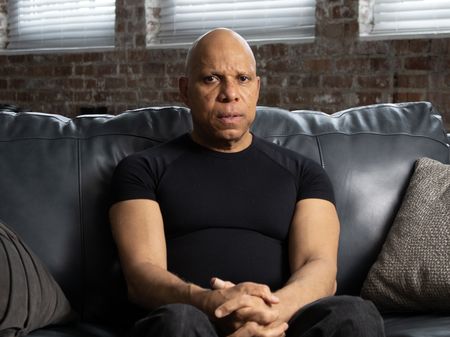
When Hurricane Katrina hit the city in 2005, Eddie Compass was New Orleans' Police Department Chief/Superintendent. He recounts his experience as key figure in many of Katrina’s political controversies, during an interview conducted for National Geographic's Hurricane Katrina: Race Against Time. With emotional accounts of survivors and immersive archival footage, the series reveals Hurricane Katrina as a disaster that was anything but natural. (National Geographic)
Episode: #04 "Shoot To Kill"
Air Date 07/28/2025
104_ShootToKill_HurricaneKatrinaRaceAgainstTime_17.jpg
Download
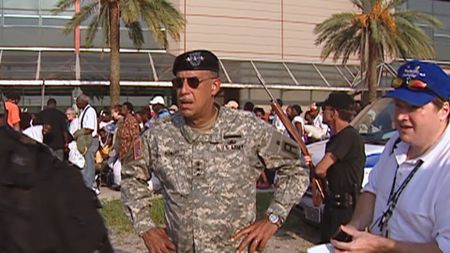
Commander of the Joint Task Force Katrina Lt. General Russel Honore stands outside of the crowded Convention Center in New Orleans, La., after Hurricane Katrina in 2005. (CNN)
Episode: #04 "Shoot To Kill"
Air Date 07/28/2025
104_ShootToKill_HurricaneKatrinaRaceAgainstTime_UHD_74.jpg
Download
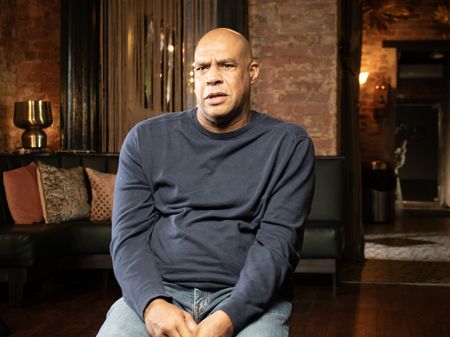
John Keller lived in the American Cannery building, located in New Orleans’ 5th Ward, when Hurricane Katrina hit in 2005. He helped organize his fellow building residents to move to the rooftop so they could be rescued. He recounts his experience during an interview for the production of National Geographic's Katrina: Race Against Time. With emotional accounts of survivors and immersive archival footage, the series reveals Hurricane Katrina as a disaster that was anything but natural. (National Geographic)
Episode: #04 "Shoot To Kill"
Air Date 07/28/2025
104_ShootToKill_HurricaneKatrinaRaceAgainstTime_36.jpg
Download
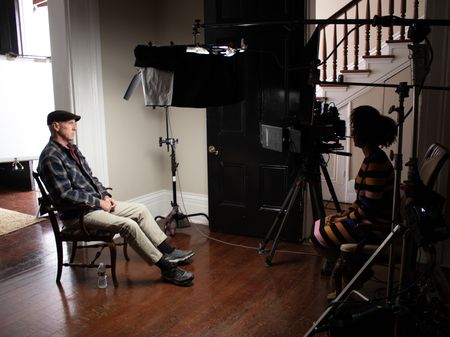
When Hurricane Katrina hit New Orleans in 2005, Tim Bayard was a Captain at the New Orleans Police Department. He recounts his experience during an interview with Director Traci A. Curry for National Geographic's Hurricane Katrina: Race Against Time. With emotional accounts of survivors and immersive archival footage, the series reveals Hurricane Katrina as a disaster that was anything but natural. (National Geographic)
Episode: #04 "Shoot To Kill"
Air Date 07/28/2025
104_ShootToKill_HurricaneKatrinaRaceAgainstTime_59.jpg
Download
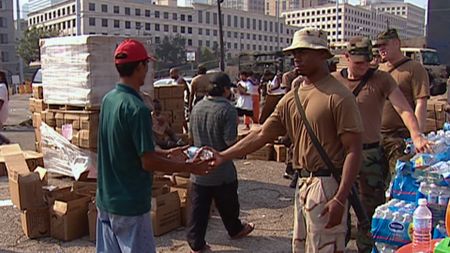

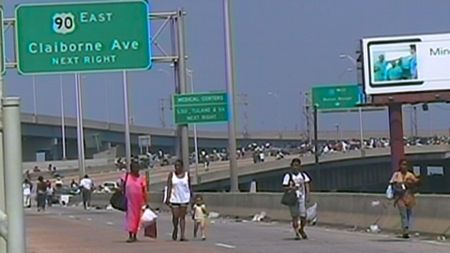
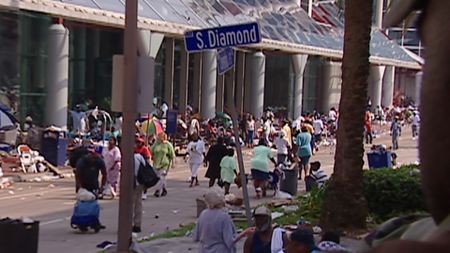
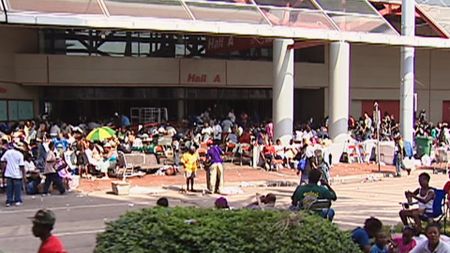
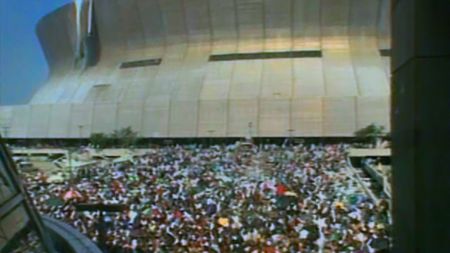
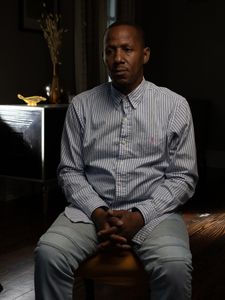
2005 New Orleans resident Edward King recounts the events surrounding the death of his brother, Henry Glover, in the aftermath of Hurricane Katrina, during a present day interview made for National Geographic's Hurricane Katrina: Race Against Time. With emotional accounts of survivors and immersive archival footage, the series reveals Hurricane Katrina as a disaster that was anything but natural. (National Geographic)
Episode: #04 "Shoot To Kill"
Air Date 07/28/2025
104_ShootToKill_HurricaneKatrinaRaceAgainstTime_52.jpg
Download
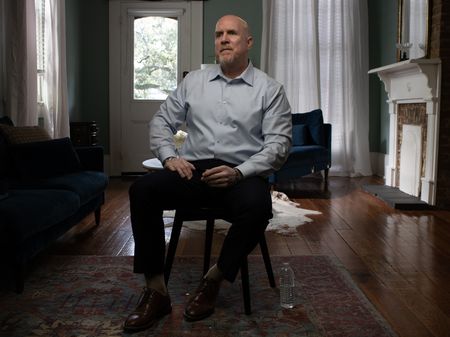
Ed Bush was a Major in the Louisiana National Guard when Hurricane Katrina hit New Orleans in 2005. He recounts his experience during an interview for National Geographic's Katrina: Race Against Time. With emotional accounts of survivors and immersive archival footage, the series reveals Hurricane Katrina as a disaster that was anything but natural. (National Geographic)
Episode: #04 "Shoot To Kill"
Air Date 07/28/2025
104_ShootToKill_HurricaneKatrinaRaceAgainstTime_37.jpg
Download
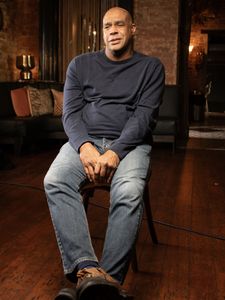
John Keller lived in the American Cannery building, located in New Orleans’ 5th Ward, when Hurricane Katrina hit in 2005. He helped organize his fellow building residents to move to the rooftop so they could be rescued. He recounts his experience during an interview for the production of National Geographic's Katrina: Race Against Time. With emotional accounts of survivors and immersive archival footage, the series reveals Hurricane Katrina as a disaster that was anything but natural. (National Geographic)
Episode: #04 "Shoot To Kill"
Air Date 07/28/2025
104_ShootToKill_HurricaneKatrinaRaceAgainstTime_35.jpg
Download
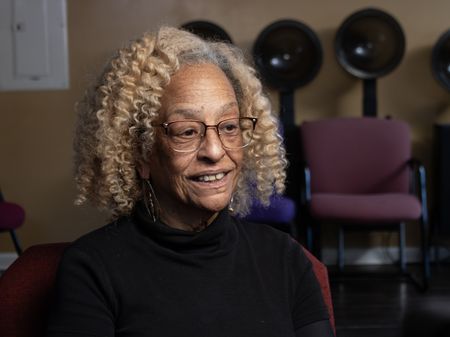
Tremé resident Lynette Boutte survived the devastation of Hurricane Katrina through chest-deep waters and the scorching concrete of the Claiborne Bridge. Boutte, who is now an advocate for the restoration of the culture and heritage of New Orleans, recounts her experience during an interview for National Geographic's Hurricane Katrina: Race Against Time. With emotional accounts of survivors and immersive archival footage, the series reveals Hurricane Katrina as a disaster that was anything but natural. (National Geographic)
Episode: #04 "Shoot To Kill"
Air Date 07/28/2025
104_ShootToKill_HurricaneKatrinaRaceAgainstTime_34.jpg
Download
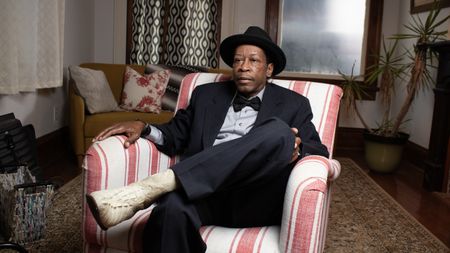
Big Chief Kevin Goodman is a cultural ambassador, coming from a family immersed in the rich traditions of the 7th Ward Black Masking Indian (also referred to as Mardi Gras Indian) culture, which blends African, Native American, and Creole influences. During Katrina, weakened from days without food and water, Goodman bravely held his months-old twin nieces in his arms as he stood in front of news cameras to report the reality of what was happening at the Convention Center. With emotional accounts of survivors and immersive archival footage, National Geographic's Hurricane Katrina: Race Against Time reveals Hurricane Katrina as a disaster that was anything but natural. (National Geographic)
Episode: #04 "Shoot To Kill"
Air Date 07/28/2025
104_ShootToKill_HurricaneKatrinaRaceAgainstTime_08.jpg
Download
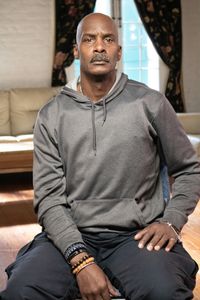
New Orleans resident William Tanner recounts the events surrounding the murder of Henry Glover in the aftermath of Hurricane Katrina, 2005. With emotional accounts of survivors and immersive archival footage, National Geographic's Hurricane Katrina: Race Against Time reveals Hurricane Katrina as a disaster that was anything but natural. (National Geographic)
Episode: #04 "Shoot To Kill"
Air Date 07/28/2025
104_ShootToKill_HurricaneKatrinaRaceAgainstTime_24.jpg
Download
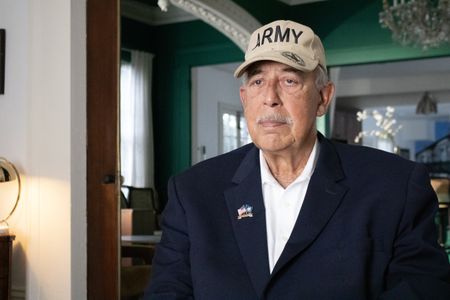
When Hurricane Katrina hit New Orleans in 2005, Lt. General Russel Honoré served as commander of Joint Task Force Katrina and is widely credited for reestablishing order and evacuating the Superdome. Prioritizing rescues, care and dignity for people left stranded, he quickly won great acclaim when he ordered National Guard troops to lower their weapons. With emotional accounts of survivors and immersive archival footage, National Geographic's Hurricane Katrina: Race Against Time reveals Hurricane Katrina as a disaster that was anything but natural. (National Geographic)
Episode: #04 "Shoot To Kill"
Air Date 07/28/2025
104_ShootToKill_HurricaneKatrinaRaceAgainstTime_31.jpg
Download
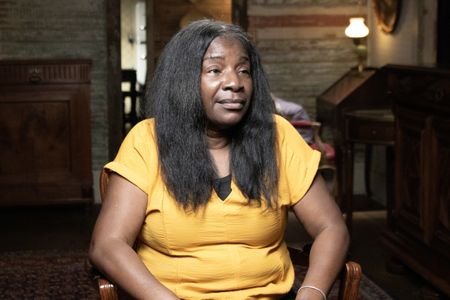
When Hurricane Katrina hit the city in 2005, Lucrece Phillips lived in New Orleans’ 8th Ward, almost at the beginning of the 9th Ward. She was interviewed soon after escaping her attic by a Times-Picayune reporter. She recounts her experience during an interview for National Geographic's Katrina: Race Against Time. With emotional accounts of survivors and immersive archival footage, the series reveals Hurricane Katrina as a disaster that was anything but natural. My house was in the Eighth Ward, almost the beginning of the Ninth Ward.
Episode: #04 "Shoot To Kill"
Air Date 07/28/2025
104_ShootToKill_HurricaneKatrinaRaceAgainstTime_33.jpg
Download
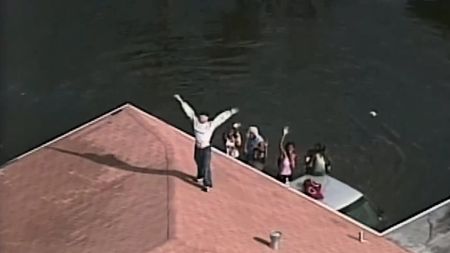
Stranded New Orleans residents stand in flood waters and on the roof of a flooded house and wave at a helicopter, hoping to be rescued in the aftermath of Hurricane Katrina in 2005. (Kurator/Tegna/WWL)
Episode: #04 "Shoot To Kill"
Air Date 07/28/2025
104_ShootToKill_HurricaneKatrinaRaceAgainstTime_UHD_79.jpg
Download
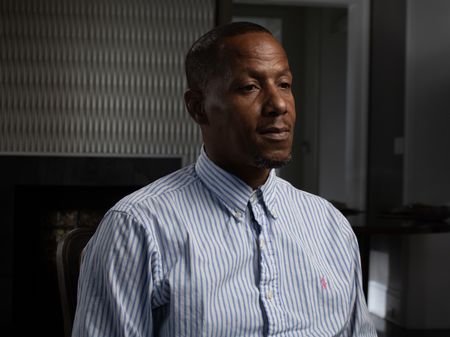
2005 New Orleans resident Edward King recounts the events surrounding the death of his brother, Henry Glover, in the aftermath of Hurricane Katrina, during a present day interview made for National Geographic's Hurricane Katrina: Race Against Time. With emotional accounts of survivors and immersive archival footage, the series reveals Hurricane Katrina as a disaster that was anything but natural. (National Geographic)
Episode: #04 "Shoot To Kill"
Air Date 07/28/2025
104_ShootToKill_HurricaneKatrinaRaceAgainstTime_55.jpg
Download
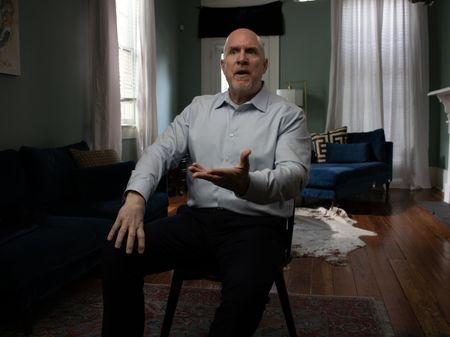
Ed Bush was a Major in the Louisiana National Guard when Hurricane Katrina hit New Orleans in 2005. He recounts his experience during an interview for National Geographic's Katrina: Race Against Time. With emotional accounts of survivors and immersive archival footage, the series reveals Hurricane Katrina as a disaster that was anything but natural. (National Geographic)
Episode: #04 "Shoot To Kill"
Air Date 07/28/2025
104_ShootToKill_HurricaneKatrinaRaceAgainstTime_40.jpg
Download
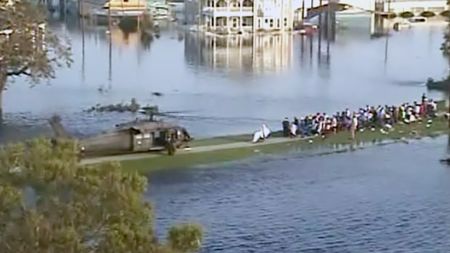
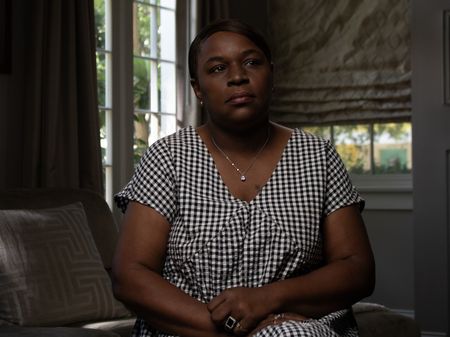
2005 New Orleans resident Patrice Glover recounts the events surrounding the death of her brother, Henry Glover, in the aftermath of Hurricane Katrina, during a present day interview made for National Geographic's Hurricane Katrina: Race Against Time. With emotional accounts of survivors and immersive archival footage, the series reveals Hurricane Katrina as a disaster that was anything but natural. (National Geographic)
Episode: #04 "Shoot To Kill"
Air Date 07/28/2025
104_ShootToKill_HurricaneKatrinaRaceAgainstTime_42.jpg
Download
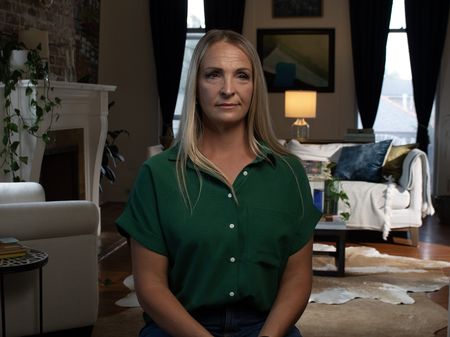
When Hurricane Katrina hit New Orleans in 2005, Sara Faulkner was a member of a U.S. Coast Guard helicopter rescue crew. She recounts her experience during an interview for National Geographic's Hurricane Katrina: Race Against Time. With emotional accounts of survivors and immersive archival footage, the series reveals Hurricane Katrina as a disaster that was anything but natural. (National Geographic)
Episode: #04 "Shoot To Kill"
Air Date 07/28/2025
104_ShootToKill_HurricaneKatrinaRaceAgainstTime_57.jpg
Download
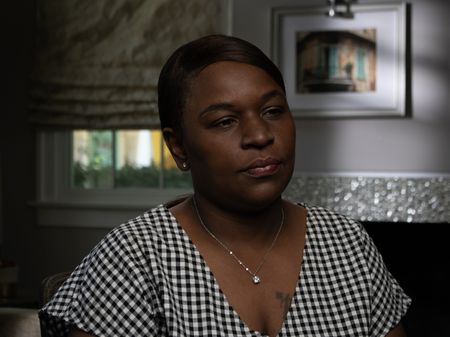
2005 New Orleans resident Patrice Glover recounts the events surrounding the death of her brother, Henry Glover, in the aftermath of Hurricane Katrina, during a present day interview made for National Geographic's Hurricane Katrina: Race Against Time. With emotional accounts of survivors and immersive archival footage, the series reveals Hurricane Katrina as a disaster that was anything but natural. (National Geographic)
Episode: #04 "Shoot To Kill"
Air Date 07/28/2025
104_ShootToKill_HurricaneKatrinaRaceAgainstTime_47.jpg
Download








